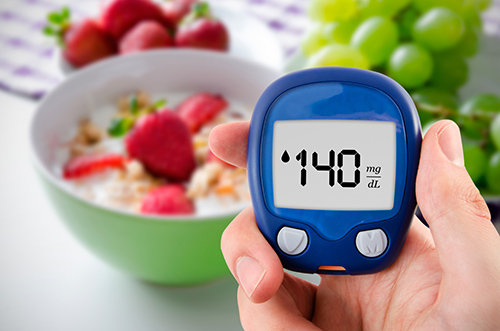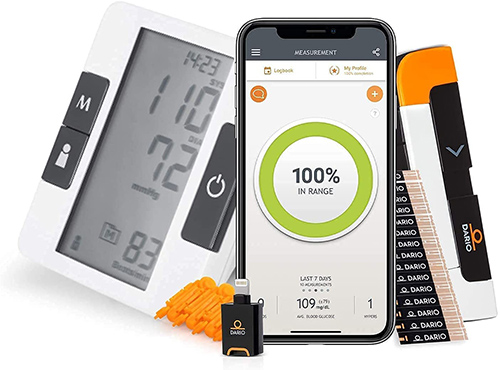Contents
Knowing the difference between hyperglycemia and hypoglycemia is essential when learning more about blood sugar levels. For instance, hypo is low, and hyper is high. Therefore, hypoglycemia means your blood sugar levels are low, and hyperglycemia means your levels are too high.
Blood sugar levels fluctuate throughout the day, depending on what you eat. Other factors that can lead to changes in levels are health issues and the environment. Healthy individuals produce a hormone that responds to the changes in blood sugar throughout the day. This hormone, called insulin, helps the body metabolize the sugars in the bloodstream so that it does not increase and become problematic.
Thanks to insulin, the body can maintain a healthy blood glucose balance. Unfortunately, certain health conditions can affect this process, which then leads to hyperglycemia or hypoglycemia.
High Blood Sugar Levels: Hyperglycemia
When someone is diagnosed with extremely high blood glucose levels, it indicates that the individual is (insulin-resistant) and their body is not producing enough insulin. Multiple factors can cause this condition, such as excess stress and lack of exercise. Hyperglycemia can also be a result of people with type 1 diabetes forgetting to take their insulin shots.
However, the leading cause of hyperglycemia is the overconsumption of carbohydrate-rich foods. If left untreated, pre-diabetes can set in, leading to full-blown type 2 diabetes. When this happens, the body cannot control the blood glucose levels, leading to long-term health problems.
Certain medications can also increase blood sugar levels as a side-effect of the drug. Because of this, you must consult your physician before taking over-the-counter medications and supplements if you already have issues with your blood glucose levels.
Symptoms to look out for are extreme thirst, fatigue, constant urination, nausea, and blurred vision. These symptoms show that your blood glucose levels have been excessively high for quite some time. Seek Advice From your physician immediately if you experience any of these symptoms.
Your doctor will run a simple blood test to get an idea of how high your blood sugar levels are. Once they know the levels, they will likely put you on medication and recommend eating less carbohydrate-rich foods and exercising more.
Low Blood Sugar Levels: Hypoglycemia
You are considered hypoglycemic if your blood glucose level falls below 70 mg/dl, which means your blood sugar is too low. If left untreated, this condition can pose serious health consequences, such as coma and death. Immediate medical attention is needed if blood sugar levels drop too quickly. A rapid decrease in levels can result in unconsciousness and convulsions.

Hypoglycemia causes include not eating enough carbs, excessive alcohol consumption, prolonged physical exertion, and skipping or delaying meals. Certain medications can also cause a significant drop in blood sugar levels, making it crucial to consult with a physician about the side effects of any drugs you may be taking.
Usually, hypoglycemic episodes result from multiple circumstances rather than a single factor. Type 1 diabetics need to be extremely careful because they can experience episodes if their insulin dosage goes beyond their immediate requirements. Hypoglycemia also occurs when physical exertion and unplanned fasting are followed by medication, resulting in glucose depletion in the bloodstream.
Some symptoms of hypoglycemia include irritability, tiredness, numbness around the mouth, shaking, slurred speech, anxiousness, weakness, and constant hunger. Excess sweating and headaches are also prevalent.
If you are suffering from any of these symptoms, try to eat something to get your blood sugar back up. If possible, have someone monitor you when attempting to get your blood sugar back to optimal levels. Talk with your physician if the condition gets worse. If the symptoms continue to re-occur, your doctor will have to do an assessment.
Keep Your Blood Glucose Levels Balanced
If, for some reason, you believe you may have hyperglycemia or hypoglycemia, check your blood glucose levels regularly, along with some simple lifestyle changes. You can purchase inexpensive blood glucose testers from your local pharmacy or online. Also, regular exercise helps your body metabolize sugars in the bloodstream.
The consumption of healthy meals at regular intervals will help. Please let your doctor know if you believe certain medications affect your blood glucose levels.
The human body is fully capable of regulating blood sugar levels. However, what you do in life can impede or assist your body in keeping it balanced. Type 1 diabetics will have to use insulin for the rest of their lives because the pancreas, the insulin producer, is not working correctly.
People with type 2 diabetes can control their blood sugar using medication. However, with simple lifestyle and dietary changes, medicine can be limited or eliminated with your doctor’s permission.
DISCLAIMER: All content on this website is presented solely for educational and informational objectives. It would be best to not rely on the information provided as a replacement for advice, diagnosis, or treatment from a qualified medical expert. If you are pregnant, nursing, or have any preexisting medical concerns, you should talk to your doctor before using any herbal or natural medicines.
References
- American Diabetes Association: https://diabetes.org
- Mayo Clinic: https://www.mayoclinic.org/diseases-conditions/diabetes/
- National Institute of Diabetes and Digestive and Kidney Diseases (NIDDK): https://www.niddk.nih.gov/health-information/diabetes/overview/tests-diagnosis
- National Center for Complementary and Integrative Health (NCCIH): https://www.nccih.nih.gov/
- Examine.com: https://examine.com/

